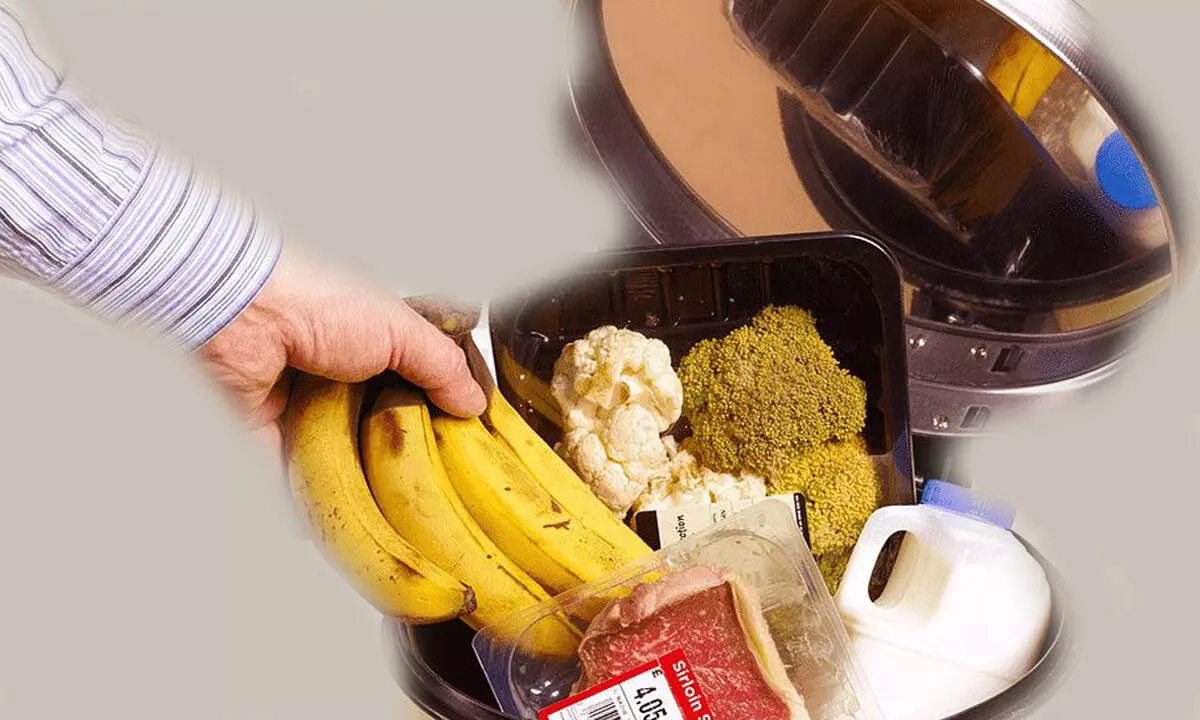Expert tips on controlling food waste

Expert tips on controlling food waste
Food waste is defined as food that is not eaten at home and is afterward thrown out. Food that has been thrown away or that has passed its "use-by date" may be the cause of this.
Food waste is defined as food that is not eaten at home and is afterward thrown out. Food that has been thrown away or that has passed its "use-by date" may be the cause of this. Food waste occurs during food production and processing in a variety of ways. A third of the food produced worldwide is reportedly wasted each year.
Neelam Chauhan, a dietician of the NIIMS Department of Dietetics, explains ways to reduce food waste at home:
Planning and purchasing meals
Plan your meals and activities for the week based on the foods that need to be consumed. Use up the leftovers by preparing a second dinner. Prioritize using fresh food before using frozen or canned goods. Shop intelligently by first checking your cabinets, freezer, and refrigerator to see what you already have.
Make a list before you go shopping. Only invest in what is required. Be careful not to be lured in by promotional materials for things you don't need.
Keeping food fresh
Keep your refrigerator set to 5 degrees or less. Transparent containers are best for storing leftovers since they make it easier to see what you have. To promote using older products before they deteriorate, place new foods in the front of the refrigerator and older foods in the back. Avoid storing milk, cheese, and yogurt in the refrigerator door, which has the warmest temperature, to keep them cooler and fresher for longer.
Fruits, dairy products, and vegetables that have been chopped may go bad more rapidly, so don't chop food until you're ready to use it. Bread is one of the things we waste the most, so freeze it. Why not freeze and toast it instead if you don't think you'll finish it all before it spoils?
Understanding what dates mean
The phrase "best before" defines the quality of a product; the meal will be at its finest before the given date. Beyond this date, it might not be at its finest, but it will still be safe to eat. Utilize your senses when making an assessment.
Food that has passed its "use by" date should not be consumed because it is no longer safe to do so.
Control of portions
When shopping, only purchase what you require. When cooking, prepare only what you need or consider how you'll handle leftovers. Only serve yourself enough food for one meal and only enough to cover your appetite. Store leftovers in the refrigerator in a transparent container that is easy to see.
Cooking
Use up leftover vegetables: Vegetables like carrots, broccoli, spinach, and tomatoes can be used up in soups, curries, casseroles, and stir-fries.
Utilize up meats: Leftover roast dinner meat, such as chicken, turkey, hog, or beef, makes excellent sandwich fillers for the next day's lunch.
Utilize leftover fruit: Ripe avocados and bananas make excellent guacamole or banana bread.









